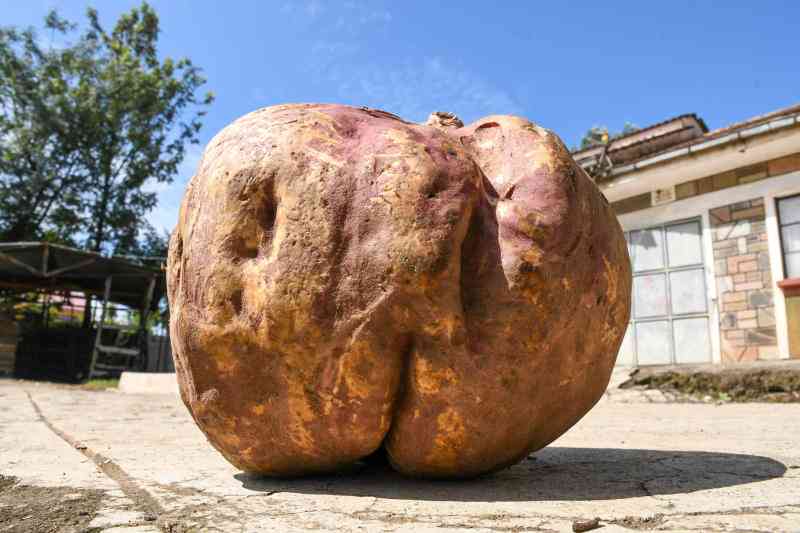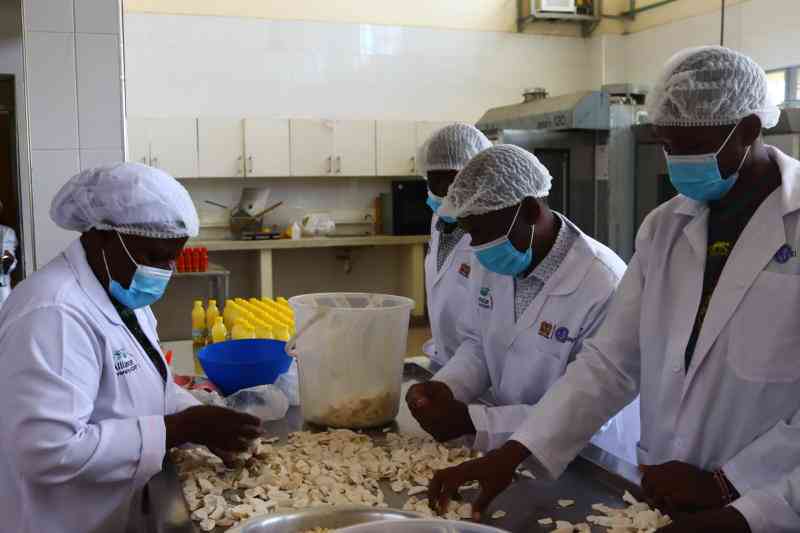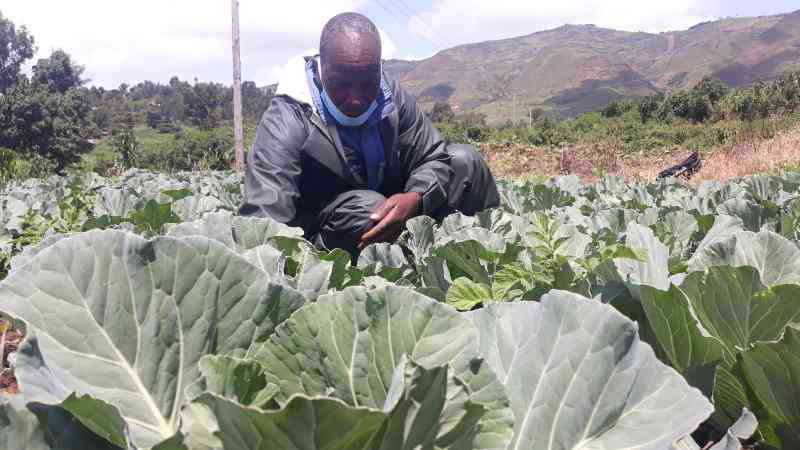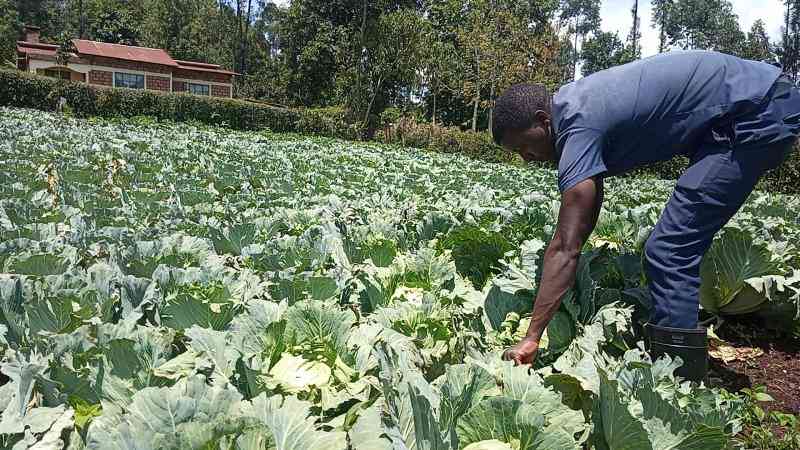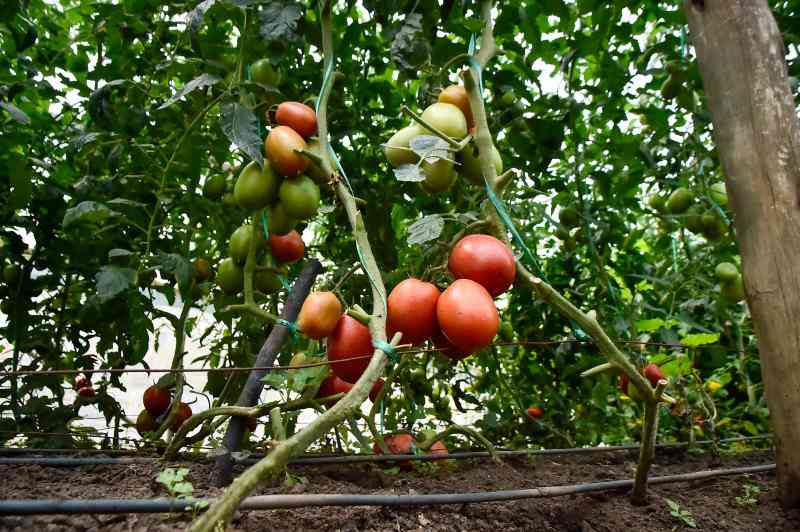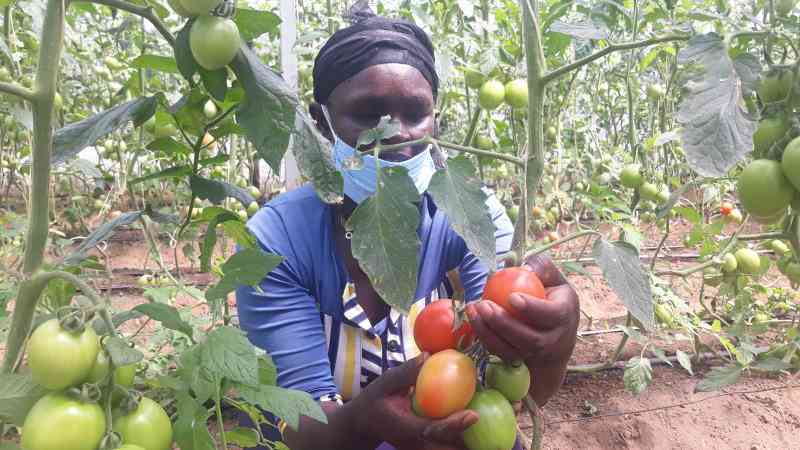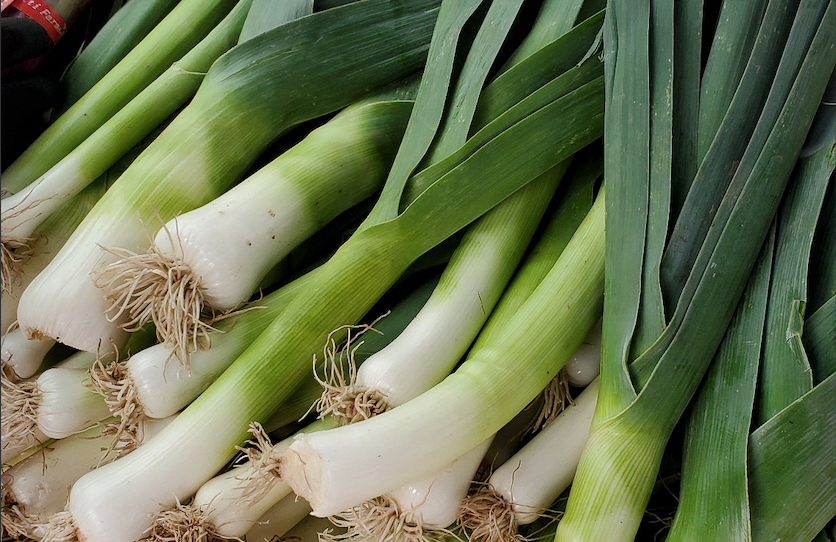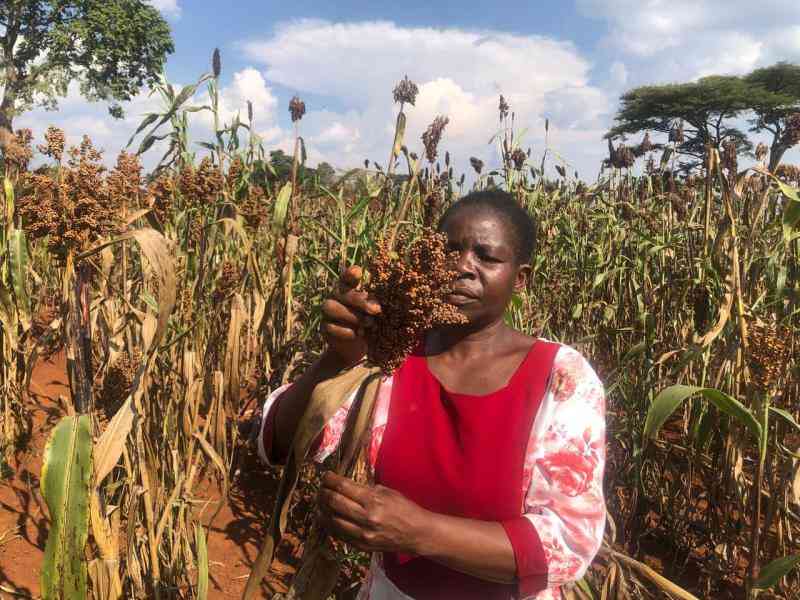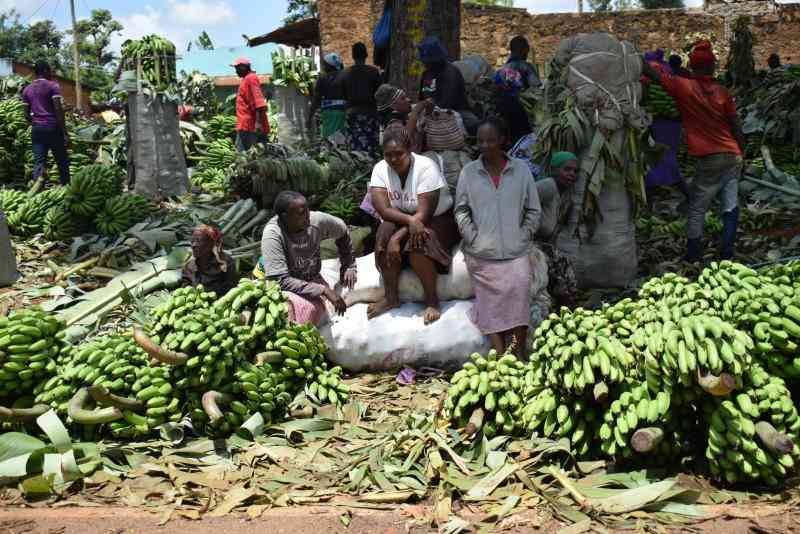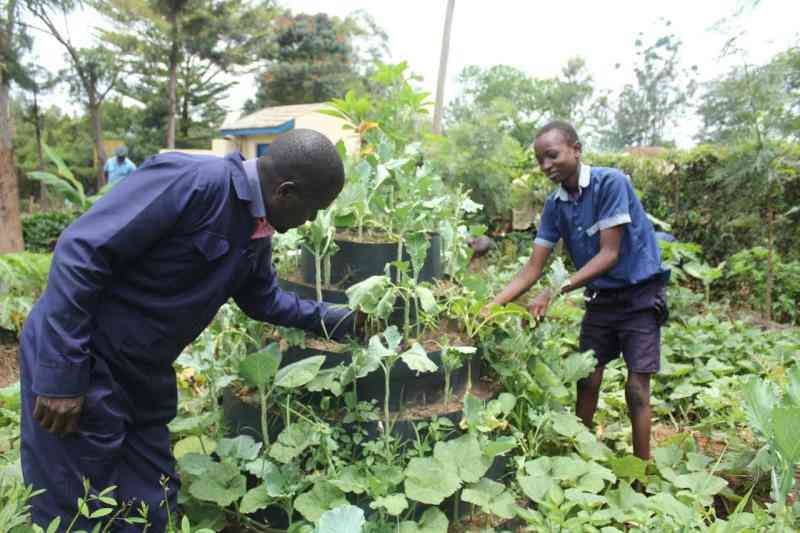
Nancy Nafula, a small-scale farmer from Bumula in Bungoma County abandoned Tobacco farming for high-value crops two years ago.
She is among hundreds of farmers in Western Kenya who have embraced agroecology and permaculture farming as a sure way of producing safe foods amid the effects of climate change.
The approach entails the application of ecological concepts and principles in farming, it also promotes farming practices that mitigate climate change and put farmers and communities in the driving seat.
It also represents a holistic and sustainable approach to farming that emphasizes biodiversity, soil health, diversity of crops, indigenous knowledge and practices and the well-being of farmers and rural communities.
"Agroecology and permaculture farming is the best approach in not only addressing food security within this region but also promoting environmental conservation and controlling negative effects of climate change," says Nafula.

Pupils of St. Dennis Libolina Special Primary Junior school for physically challenged Day Boarding in Bumula sub county, Bungoma County tending to their crops. [Jackline Inyanji, Standard]
According to the Regional Schools and Colleges Permaculture (ReSCOPE) advocacy and coordinator Karen Nekesa, the outfit that has been training, educating, and encouraging farmers, learners, and teachers to adopt agroecology and permaculture targets to contribute to school feeding programme by using whole school approach and improve the understanding of agroecology practices being fronted and practiced by school communities towards the diverse production of safe nutritious food and mitigation of climate change in the country.
"The idea came after we realized that many schools have huge tracts of land idling but they struggle to feed learners. Entire school grounds are designed by the stakeholders as well as the implementation of permaculture/sustainable ecological agricultural activities. This addresses social, economic, and environmental community needs. This has proved to be a very powerful and effective development tool that enhances inclusiveness, participation, ownership, and sustainability of the initiated projects in schools and at the community level," she noted.
ReSCOPE works in Kenya, Uganda, Zambia, Malawi and Zimbabwe. In Kenya, they are implementing the project through schools and colleges permaculture programme (SCOPE Kenya) that works with school communities to empower young children and transform degraded school lands into food forests through agroecology or permaculture practices.
Some of the beneficiary schools are Lubunda and Amena Primary Schools in Bungoma, Eshiruli and Elinuni Primary Schools in Vihiga, Ugolwe Primary School in Siaya as well as Konim Primary School, Ebenezer Orphanage and Pawten'g Primary School in Kisumu.
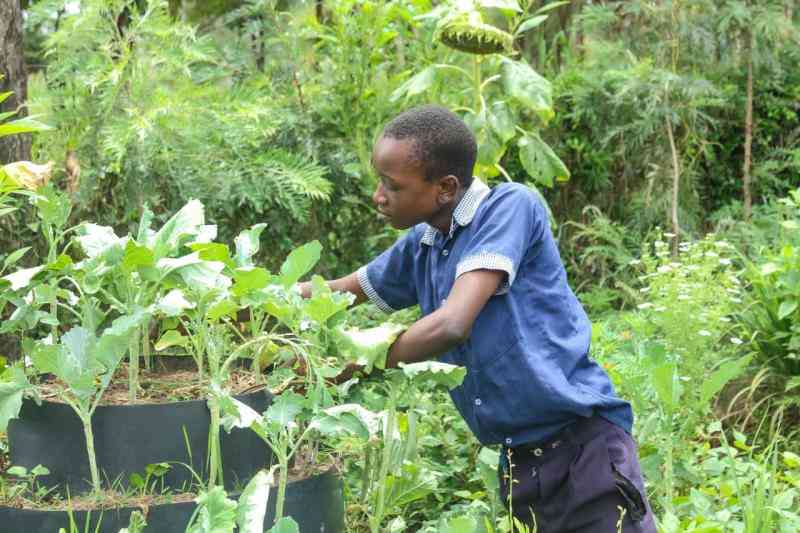
Pupils of St. Dennis Libolina Special Primary Junior school for physically challenged Day Boarding in Bumula sub county, Bungoma County tending to their crops. [Jackline Inyanji, Standard]
"We are working with young children aged between 7 to 12 years in schools to establish a food forest which means a garden that has everything they need just like in a supermarket. It has requirements needed in terms of healthy and nutritious food like fruits, vegetables, tubers and carbohydrates. We encourage young children to love agriculture and not look at it as a punishment but as a food security measure and an income venture," she noted.
The official revealed that they have been able to make strides and now children enjoy going to school because they have food. "The children are always engaged since they know how to plant and grow their food. We have a slogan dubbed 'grow your own eat your own' in school so that children know food comes from the soil and not the supermarket. We use schools as learning centers for the communities and I am happy communities are emulating the same in their homes and that will help the country achieve its food security agenda," Nekesa noted.
According to Nekesa, they have been able to reach schools in 17 counties and envisage covering schools across the 47 counties by promoting and influencing policies on sustainable agriculture, contributing to the school feeding programme, climate issues and promoting climate adapting seeds as they encourage learners to replant their own seeds.
"The world is enduring the effects of the climate emergency and leaders need to prioritise agroecology, food sovereignty, and biodiversity conservation as solutions to feed our communities while also adapting to climate change. There's also a need to give small-scale farmers finance in the form of grants rather than loans," she noted.
St. Dennis Libolina Special Primary Junior School for physically challenged Day Boarding in Bumula sub-county, Bungoma County has perfected permaculture farming.
The school occupies at least two and a half acres of land on which learners practice permaculture on half half-acre parcel.
It previously served as a home for both physically and mentally challenged learners, before it was transferred into a public primary school.
According to the school head teacher Gladys Orlendo, when she took over in 2018, the school could not sustain learners in terms of food security due to lack of funds and it was almost coming to a halt during the COVID-19 pandemic since most parents abandoned the children and never showed even when they were called upon.
Luckily, SCOPE Kenya intervened by rolling out awareness and training to staff, the Board of Management, learners, and parents on agroecology farming in the school with the sole aim of making it self-sustainable in terms of food security before the groundbreaking in March 2023.
"They designed the school land that is now producing a surplus, we are now able to feed our learners and teachers since we produce our own vegetables, potatoes, and fruits in plenty," Orlendo noted.
She notes mitigations of permaculture expose learners and help them become self-reliant, especially for those who cannot transit to secondary school, they also participate actively in the farming exercise as it offers sites for CBC practical.
According to Orlendo, every class designed has designed a farm in front of the classroom with a diverse range of food. "It is productive and it has also improved the health of learners, we rarely have sick cases because our pupils are fed on nutritious food."
She said enough food has seen 100 percent attendance and improved the school's overall performance.
"Before the school started Permaculture farming we recorded huge numbers of absenteeism. The turn-out is now 100 percent and has made us introduce a boarding programme for some learners."
Teachers would also contribute money to buy vegetables "but now they produce their own vegetables thus impacting positively on teachers attending to learners without worrying where they will get money for lunch," said Orlendo.
She, however, said that the main challenge facing the school is lack of market for their produce and inadequate supply of water for irrigation saying that they greatly depend on rainfall water. Orlendo underscored the importance of harvesting rain water for future due to the climate change phenomenon.
The school project manager who is also one of the teachers at the school, Xavier Emodo explains how the farm is divided, putting in mind the aspect of permaculture which include food forest, animals, trees and horticulture.
First they have a main food forest where they have planted various crops like sunflower, bananas, traditional vegetables, medicinal trees like Tumisia and lemon grass.
Permaculture is a new model of farming that involves the growth of agricultural ecosystems in a self-sufficient and sustainable way.
"Our need is to have enough food for learners, we have also included climate change in our garden by planting trees like Grevillea Robusta, marigold, mangoes, passion, Avocado, guavas. Some of these trees help learners differentiate between creeping fruits, those whose stem are weak or strong and thus improving their knowledge," he noted
"Our school land was bare but through permaculture knowledge; the school is now green and other schools usually come for benchmarking here. With this project general performance in agriculture and other subjects has improved since learners are practically doing it," said the teacher.
Naomi Sitati, a parent at the school says through the project, the relationship between learners, parents and teachers has improved.
She says through the project they formed Libolina Precious Women Group that's helping them implement permaculture skills and generate income for themselves.
According to Assumpta Namusola, a grade 7 pupil, through permaculture, she has learned skills on how to make compost manure on her own.
"We toil the sand for easy organism, then use course material like maize cobs for aeration, add soil and water before adding kitchen waste and then use a thermophilic stick to check if it's ready after some weeks. I do the same at home and help my parents save a lot on the cost of fertilizer. The project has helped me score higher marks in agriculture subject," said the pupil.
According to Namusola, money her parents used to buy fertilizer from Agrovets now goes to paying her fees "Since I help in making compost manure at home which my parents use for planting."
Kimaiti area Chief Samba Juma said: "The permaculture project came in handy since it has helped the school reduce the cost of food and doubled enrollment, the community is also embracing the practices.
He called on other schools and locals to embrace permaculture farming since it does not require a large piece of land.
"In the 1999 census, Bumula was ranked the poorest but now the poverty index has gone down since we have food. The permaculture program has had a positive impact in terms of nutrition on the part of learners and the community," said the chief.
 The Standard Group Plc is a multi-media organization with investments in media platforms spanning newspaper print
operations, television, radio broadcasting, digital and online services. The Standard Group is recognized as a
leading multi-media house in Kenya with a key influence in matters of national and international interest.
The Standard Group Plc is a multi-media organization with investments in media platforms spanning newspaper print
operations, television, radio broadcasting, digital and online services. The Standard Group is recognized as a
leading multi-media house in Kenya with a key influence in matters of national and international interest.

